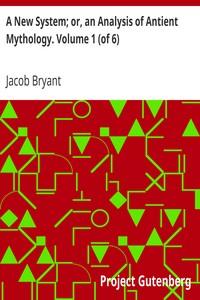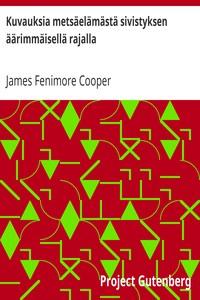|
|
Read this ebook for free! No credit card needed, absolutely nothing to pay.Words: 87967 in 24 pages
This is an ebook sharing website. You can read the uploaded ebooks for free here. No credit cards needed, nothing to pay. If you want to own a digital copy of the ebook, or want to read offline with your favorite ebook-reader, then you can choose to buy and download the ebook.

: The Continental Monthly Vol III Issue VI June 1863 Devoted to Literature and National Policy by Various - Literature Modern 19th century Periodicals; United States Politics and government 19th century Periodicals Continental Monthly@FreeBooksTue 06 Jun, 2023 pendent communities; in other words, it tends to lapse into barbarism. Such a movement is, however, against the order of Providence, and thus is an evil that corrects itself. Men are happier in large communities than in small; and when selfishness and ambition have broken up a large state into many small and independent ones, the same principle of selfishness, still operating, keeps them in perpetual mutual jealousy and collision, until, whether they will or not, they are forced into a mass again by some strong military despot, or conquered by a superior foreign power, and quiet is for a time again restored. From these considerations we conclude that civilization, as it advances, is but the index of the capacity of human beings to form themselves into larger and larger nationalities , each consisting of numerous parts, performing distinct functions; yet so organized harmoniously that each part shall preserve all the freedom that it requires for its utmost development and happiness, and yet depend for its own life upon the life of the entire national body. It may also be concluded that this capacity of men so to organize is just in proportion to the development of the higher elements and faculties of the mind, the religious, moral, social, and intellectual, and the diminished influence of the lower, animal, and selfish nature. Consequently, when in such a large and harmoniously organized nationality as the American Union, there arises a movement which, without the slightest rational or high moral cause, aims to break away from this advanced, this free and humanizing political organization; and not only to break away from the main body, but also maintains the right of the seceding portion itself to break up into independent sovereignties; then, the conclusion is forced upon every impartial mind that the spirit which animates such a disruptive movement is a spirit opposed to civilization, since it runs in precisely the opposite direction; as, instead of tending to unity, to accord, to a large organization with individual freedom, it tends to disunity, separation, the splitting up of society into many independent sovereign states, or fractions of states, certain, absolutely certain to clash and war with each other, especially with slavery as their woof and warp; and thus bring back the reign of barbarism, and the ultimate subjection of these warring little sovereignties to one or more iron despotisms. What is the cause of this wicked, heaven-defying, insane movement on the part of the South? The answer is written in flames of light along the sky, and in letters of blood upon the breadth of the land. Slavery first, slavery middle, and slavery last. Accursed slavery! firstborn of the evil one--the lust of dominion over others for one's own selfish purposes, in its naked, most shameless, and undisguised form. Dominion of man over man in other modes, such as absolute monarchy, aristocracy, feudalism, ecclesiastical rule--all these justify their exactions under the plea of the welfare of the subject, or the salvation of souls. Slavery has nothing of the kind behind which to hide its monstrosity; nor does it care to do so, except when hard pushed, and then it feebly pleads the christianization of the negro! A plea at which the common sense of mankind and of Christendom simply laughs. Now slavery, we know, is just the reverse of freedom, and hence it is only natural to expect that the fruits, the results of slavery, wherever its influence extends, would closely partake of the nature of their parent and cause. Slavery, then, as the antipodes of freedom, must engender in the community that harbors and fosters it, habits, sentiments, and modes of life continually diverging from, and ever more and more antagonistic to, whatever proceeds from free institutions. Let us look at some of these. There are four points of antagonism between free and slave institutions that seem to stand out more prominently than others; at any rate, we shall not now extend our inquiry beyond them. Slavery, then, begets in the ruling class: It is at once seen how slavery develops to the utmost, in the master and dominant race, a habit of command, of self-will, of determination to have one's own way at all hazards, of intolerance of any contradiction or opposition; of quickness to take offence, and to avenge and right one's self. The possession and exercise of almost irresponsible power over others tend to destroy in the master all power of self-control; foster intolerance of any legal restraint, of any law but one's own will, that must either rule or ruin. It is a spirit that is cultivated assiduously from childhood to youth, and from youth to full age, by constant and ubiquitous subjection of the negro, young and old, to the petty tyranny, the whims and caprices of little master and miss, and by the exercise of authority at all times and in all places by the white over the black race. It is a spirit that is essential to the slave driver; and when the habit of dictation and command to inferiors has grown into every fibre of his nature, he cannot dismiss it when he deals with his equals, whenever his wishes are opposed. Hence the violence, the lawlessness, the carrying and free use of deadly weapons, the duels and murders that are so rife in the South, and the haughty manners of so many Southern Congressmen. The rebellion is simply the culmination and breaking forth of this arrogant, domineering, slavery-fostered spirit on a vast scale. Failing to hold the reins of the National Government, it must needs destroy it. Such a temper and disposition is evidently incompatible with human equality and equal rights; and in it we have one of the roots of Southern ill-concealed antagonism to free republican government. The truth however is this: Where labor is despised no community can flourish as it is capable of doing; much less one with free institutions. We might just as well talk of a body without flesh and bones; of a house without walls or timbers; of a country without land and water, as of free institutions without skilled and honorable labor. It is the very ground on which they stand. Free books android app tbrJar TBR JAR Read Free books online gutenberg More posts by @FreeBooks
: With Lee in Virginia: A Story of the American Civil War by Henty G A George Alfred - United States History Civil War 1861-1865 Fiction; Lee Robert E. (Robert Edward) 1807-1870 Fiction; Virginia History Civil War 1861-1865 Fiction Children's Fiction; US Civ@FreeBooksTue 06 Jun, 2023

: A New System; or an Analysis of Antient Mythology. Volume 1 (of 6) by Bryant Jacob - History Ancient; Mythology@FreeBooksTue 06 Jun, 2023
|
Terms of Use Stock Market News! © gutenberg.org.in2025 All Rights reserved.






